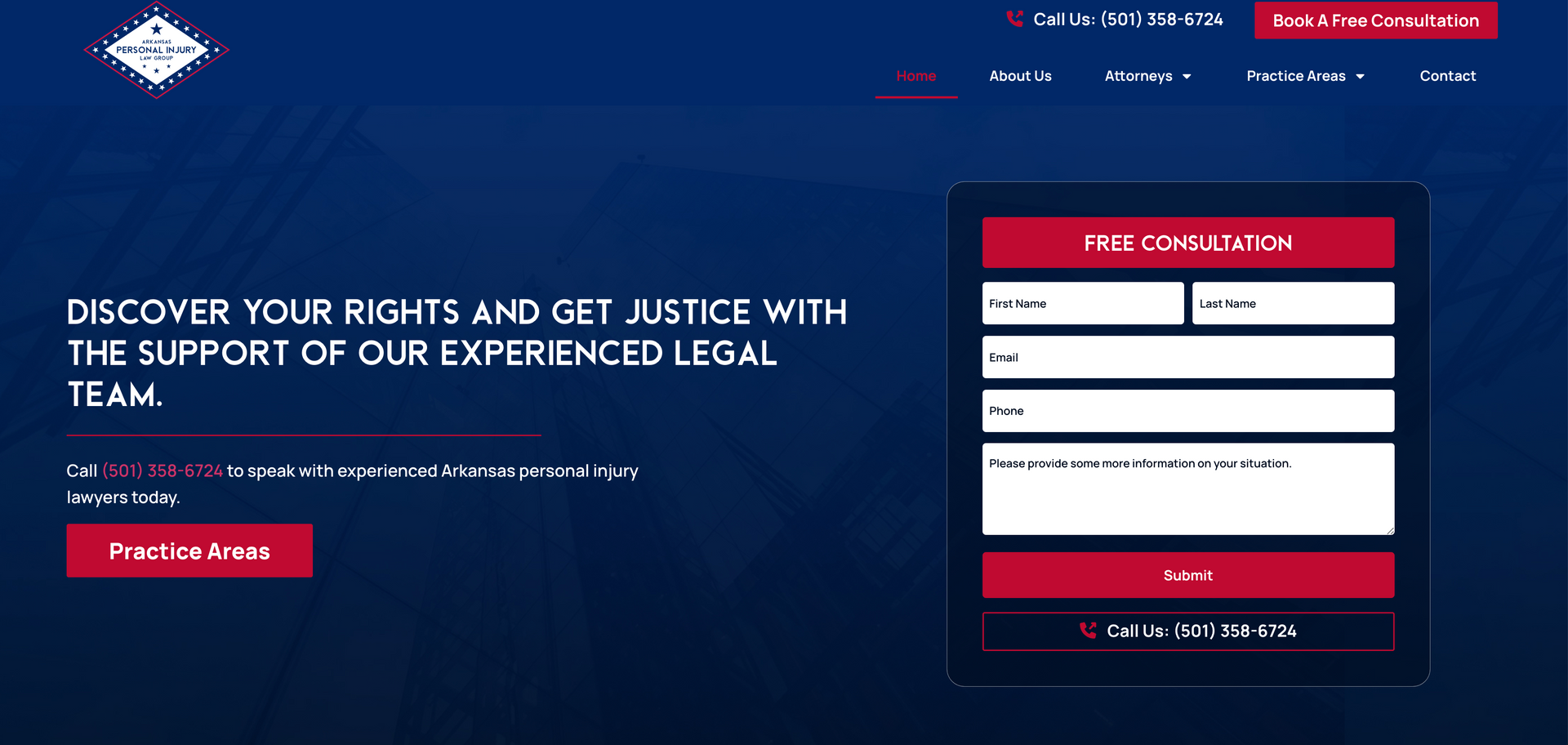Law Firm SEO Guide: Comprehensive Strategies for Law Firms
In the highly competitive legal industry, standing out online is no longer optional—it's essential. With nearly 85% of potential clients using search engines to find legal services, law firm SEO (Search Engine Optimization) can be the difference between getting new cases and being overlooked. This article will dive deep into what law firm SEO means today and how firms can leverage it effectively.
Why Law Firm SEO Matters More Than Ever
The legal industry is one of the most competitive fields in online search. Potential clients are turning to Google for answers about their legal issues rather than relying on traditional referrals. Without a strong law firm SEO strategy, even the most reputable attorneys risk losing visibility to lesser firms with better digital presence. Effective law firm SEO ensures your practice ranks high when clients search for relevant terms like “personal injury lawyer,” “criminal defense attorney,” or “business litigation expert.”
Understanding the Basics: How Law Firm SEO Works
Law firm SEO focuses on optimizing your website and online presence to appear higher in search engine results when potential clients search for legal services. While general SEO tips may suggest keyword optimization and link building, law firm SEO demands a specialized approach tailored to legal audiences.
Local SEO for Law Firms
- Why it Matters: Over 46% of Google searches are looking for local information. If your firm doesn’t show up in local search results, you’re missing out on a large portion of potential clients.
- Google Business Profile: Claim and optimize your Google Business Profile. This not only helps your firm appear in local search results but also displays critical information like contact details and client reviews.
- Citations: Accurate listings on legal directories (e.g., Avvo, Justia) are crucial for local law firm SEO. These citations help establish authority and improve local search rankings.
Keyword Strategy for Law Firm SEO
- Law firm SEO requires a specific approach to keywords. Instead of broad terms like "lawyer" or "attorney," focus on long-tail keywords and practice-specific phrases such as "Philadelphia personal injury lawyer" or "Delaware estate planning attorney."
- Content Optimization: Ensure that your website pages include these targeted keywords naturally. Avoid keyword stuffing, but strategically place terms in headings, meta descriptions, and throughout the content.
On-Page SEO: Building a Strong Foundation
- Title Tags and Meta Descriptions: These elements are the first things potential clients see in search results. Include your primary keywords for law firm SEO, such as "top criminal defense lawyer in Miami."
- Internal Linking: Guide users and search engines through your site with strategic internal links. This helps distribute page authority and improves user navigation, which is a ranking factor in law firm SEO.
- Mobile Optimization: With more than 60% of legal searches happening on mobile devices, a mobile-friendly site isn’t just recommended—it’s required. Google prioritizes mobile-optimized sites, so your law firm SEO should include responsive design.
Content Marketing: The Backbone of Law Firm SEO
Effective content marketing isn’t about writing generic blog posts. For law firm SEO, it’s about creating authoritative, in-depth articles that answer specific legal questions. This positions your firm as a thought leader and drives traffic from potential clients searching for answers online.
- Practice Area Pages: Create comprehensive pages for each of your legal services. These should be keyword-rich and address common client concerns (e.g., "What to do after a car accident?" or "How to file for divorce in New Jersey?").
- Legal Blog Articles: A blog helps keep your website updated, which is favored by Google’s algorithm. Articles that address trending legal topics, FAQs, and case studies can boost your law firm SEO by attracting organic traffic and generating backlinks.
- Evergreen Content: In addition to timely articles, develop "evergreen" content that remains relevant. Topics like "How to choose the right lawyer for your case" can drive consistent traffic over time.
Off-Page SEO: Building Authority for Your Law Firm
Beyond your website, law firm SEO relies heavily on off-page factors. Building a strong backlink profile is critical because it signals to search engines that your site is authoritative and trustworthy.
- Legal Directories: Listing your firm on reputable legal directories like Martindale-Hubbell and FindLaw can improve your visibility and credibility. These sites often rank well in searches for law firms, making them valuable for law firm SEO.
- Guest Posting: Contributing articles to legal publications (e.g., ABA Journal, The American Lawyer) not only establishes your firm’s expertise but also generates high-quality backlinks.
- Client Reviews: Positive reviews on platforms like Google and Yelp influence your firm’s reputation and ranking. Encourage satisfied clients to leave reviews, as this feedback directly impacts local law firm SEO.
Technical SEO: Optimizing the Backend
Technical SEO involves optimizing your website’s backend to ensure it’s accessible to search engines. This is often overlooked in law firm SEO but is critical for ranking.
- Page Speed: Slow-loading websites frustrate users and can hurt your rankings. Tools like Google PageSpeed Insights can help you identify areas for improvement.
- Schema Markup: Adding legal-specific schema markup (e.g., attorney schema) helps search engines understand your content better. This can improve your chances of appearing in rich snippets or answer boxes, boosting your law firm SEO efforts.
- Secure Website (HTTPS): Security is a ranking factor. Ensure your website uses HTTPS, as clients are more likely to trust and engage with a secure site.
Tracking and Measuring Law Firm SEO Success
It’s not enough to implement an SEO strategy—you need to track its performance. Use analytics tools like Google Analytics and Google Search Console to monitor your traffic, keyword rankings, and user behavior. Key metrics to focus on include:
- Organic Traffic Growth: An increase in organic traffic shows that your law firm SEO efforts are driving more potential clients to your website.
- Bounce Rate: A high bounce rate may indicate that your site isn’t meeting user expectations. Analyze which pages have high exit rates and adjust the content accordingly.
- Conversion Rate: The ultimate goal of law firm SEO is to convert visitors into clients. Track form submissions, phone calls, and live chat interactions to gauge the effectiveness of your strategy.
Partnering with Law Firm SEO Experts
While it’s possible to implement many aspects of law firm SEO yourself, the competition for top search rankings is fierce. Working with an agency that specializes in law firm SEO, like Scale and Sword Advertising, can give your firm the edge it needs. With expertise in legal marketing, Scale and Sword can handle everything from on-page optimization to complex technical issues, ensuring that your firm stays ahead in search results.
Conclusion
In today's digital landscape, law firm SEO isn’t just about being visible—it's about being the first choice when potential clients search for legal services. By focusing on a robust SEO strategy tailored specifically for law firms, you can dominate search results, increase your online presence, and ultimately grow your client base.
For a comprehensive law firm SEO strategy tailored to your practice, contact Scale and Sword Advertising. Let us help you navigate the complexities of legal SEO and position your firm for success.
Let’s talk about your project
Fill in the form or call to set up a meeting at 302 285 9806






